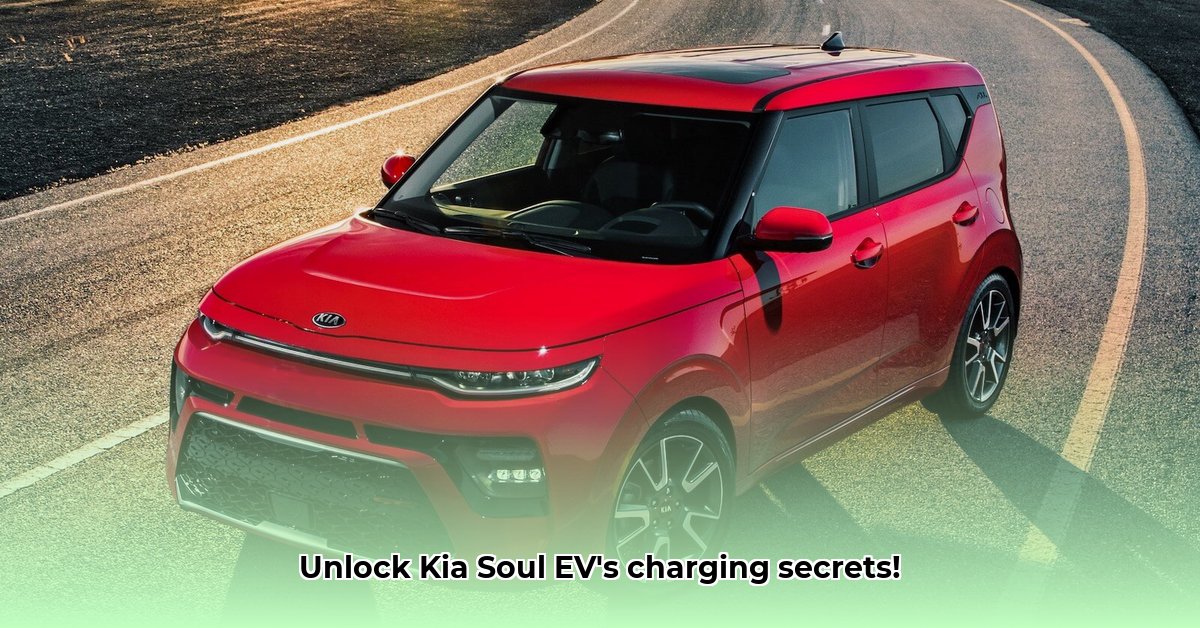
How Efficient Is the Kia Soul EV Internal Charger?
Ready to maximize your Kia Soul EV's charging efficiency? Understanding your charging options and the capabilities of your onboard charger is key to a seamless EV ownership experience. This guide will equip you with the knowledge to optimize your charging, saving you time and money.
Understanding Your Charging Options: Level 1, Level 2, and DC Fast Charging
Your Kia Soul EV offers three main charging levels:
Level 1 Charging (120V): Using a standard household outlet, this is the slowest method, ideal for overnight trickle charging. Expect a full charge to take 20+ hours.
Level 2 Charging (240V): This utilizes a dedicated 240V outlet, similar to your clothes dryer. It's significantly faster than Level 1, with your Kia Soul EV's 7.2 kW onboard charger enabling a full charge in approximately 9 hours. This is the best option for home charging.
DC Fast Charging: High-powered public charging stations offer the fastest charging speeds. While convenient for long journeys, these typically come at a higher cost per kWh.
Your Kia Soul EV's Internal Charger: Key Specifications
Your Kia Soul EV's onboard charger boasts a maximum AC charging power of 7.2 kW. This translates to a full charge in around 9 hours when using a Level 2 charger, a substantial improvement over Level 1 charging times. The vehicle uses the CCS connector, ensuring compatibility with a wide range of Level 2 and DC fast charging stations.
Choosing the Right Charging Setup: A Step-by-Step Guide
Selecting the optimal charging method depends on your individual needs. Follow these steps to choose the best approach:
Assess Daily Driving Distance: Shorter commutes may suffice with Level 1 charging, while longer trips necessitate faster Level 2 or DC fast charging.
Evaluate Home Charging Feasibility: A garage or driveway allows for convenient Level 2 home charging, requiring an initial installation investment but offering long-term cost savings.
Consider Charging Time Expectations: Balance speed and cost; while DC fast charging is quickest, it's generally pricier per kWh. Level 2 offers a good middle ground.
Analyze Your Budget: Factor in the cost of Level 2 charger installation versus the higher per-kWh cost of DC fast charging.
Home Charging vs. Public Charging Stations: A Comparison
Both options present advantages and drawbacks:
Home Charging:
- Pros: Convenience, lower cost per kWh.
- Cons: Requires upfront installation costs.
Public Charging:
- Pros: Access to DC fast charging, widespread network availability.
- Cons: Higher cost per kWh, potential for wait times and station unavailability.
Troubleshooting Common Charging Issues
Addressing charging problems proactively ensures optimal performance:
Sluggish Charging: Check for secure connections (vehicle and charger), verify charger functionality, and investigate your home's electrical supply if necessary.
Error Codes: Consult your owner's manual or Kia support for explanations of any displayed error codes.
Charger Incompatibility: Although the CCS connector is widely compatible, some older stations may not support your vehicle. Confirm compatibility before connecting.
Maximizing Kia Soul EV Charging Speed: Practical Tips
Here's how to optimize charging efficiency, whether at home or on the road:
Home Charging:
- Install a Level 2 Charger: A significant upgrade for faster charging.
- Check Amperage Settings: Higher amperage means faster charging, but ensure your home's electrical system can handle the increased load.
- Choose a Compatible Charger: Select a charger with the correct connector type (CCS) and appropriate amperage for your needs.
- Monitor Charger App: Address any software glitches or errors that may affect charging speed.
Road Trips:
- Plan Your Route: Use navigation apps that incorporate charging station locations and availability.
- Prioritize DC Fast Charging: Optimize charging time on long journeys by utilizing DC fast charging whenever possible.
- Understand Charging Costs: Be aware of the cost per kWh at different stations to budget accordingly.
Conclusion: Your Journey to Efficient Charging
Efficient EV charging is achievable with a bit of planning and understanding. By considering your charging options and addressing potential issues proactively, you can optimize charging speed and minimize costs, ensuring a smooth and enjoyable EV driving experience.
Appendix: Helpful Resources
(This section would include links to relevant Kia resources, charging station finder apps, and other helpful websites.)